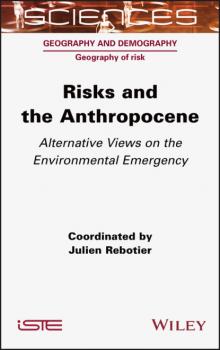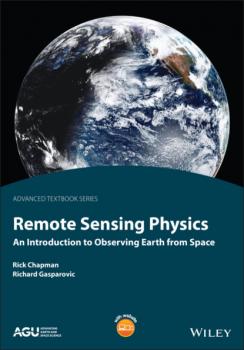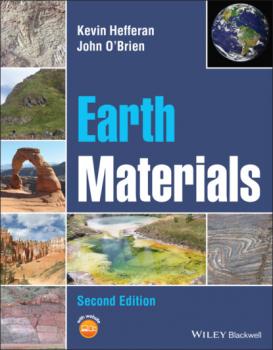География
Различные книги в жанре ГеографияRisks and the Anthropocene
The Anthropocene refers to all societies’ current era of environmental challenges. For the social sciences, the Anthropocene represents a historical “moment” with huge potential: it offers people new ways of considering the human condition, as well as how they interact with the rest of the living world and with the planet on all levels. At the turn of the 21st century, the idea of the Anthropocene burst onto the older, diverse and varied scene of risk studies.<br /><br />This “new geological era”, which is entirely created by humanity, went on to revive our understanding of environmental issues, as well as the analysis of the social and political problems that constitute risk situations.<br /><br />Drawing together contributions from specialists in social sciences concerning risks and the environment, <i>Risks and the Anthropocene</i> explores the advantages that the idea of the Anthropocene can offer in understanding risks and their management, as well as the limitations it presents.
Основы геологии. (Бакалавриат). Учебник.
Содержит сведения о Земле как развивающейся геологической системе, методах изучения ее строения, состава и истории в планетарном масштабе, о наиболее распространенных экзогенных и эндогенных процессах, их проявлении на разных уровнях организации геологической среды, отражении в осадках и горных породах, в обобщенном виде приводится информация о тектонических дислокациях и геодинамических процессах. Соответствует ФГОС ВО последнего поколения. Для студентов бакалавриата геологических специальностей и направлений подготовки, а также других направлений, предусматривающих изучение основ геологии.
Congo Basin Hydrology, Climate, and Biogeochemistry
New scientific discoveries in the Congo Basin as a result of international collaborations The Congo is the world’s second largest river basin and home to 120 million people. Understanding the cycling of water, sediments, and nutrients is important as the region faces climatic and anthropogenic change. Congo Basin Hydrology, Climate, and Biogeochemistry: A Foundation for the Future explores variations in and influences on rainfall, hydrology and hydraulics, and sediment and carbon dynamics. It features contributions from experts in the region and their international collaborators. Volume highlights include: New in-situ and remotely sensed measurements and model results Use of historic data to assess precipitation and hydrologic changes Exploration of water exchange between wetlands and rivers Biogeochemical processes in the Congo’s forests and wetlands A scientific foundation for hydrologic resource management in the region Studies from different parts of the Congo river and its adjoining basins This book is available in English and French. The American Geophysical Union promotes discovery in Earth and space science for the benefit of humanity. Its publications disseminate scientific knowledge and provide resources for researchers, students, and professionals.
Геолого-геоморфологическая основа ландшафтов Западной Сибири. (Бакалавриат). Монография
На базе обширного геологического и геоморфологического фактического материала, с учётом изучения общей ледниковой теории, новейшими научными достижениями, и в первую очередь с динамикой энергетического фактора охарактеризованы основные этапы становления облика геологического основания современных ландшафтов Западной Сибири. В геологическом строении и рельефе Западной Сибири климатические этапы времени континентальных оледенений отразились в возникновении определенных комплексов геологических тел и их границ в пределах ледниковой, приледниковой и внеледниковой зон.Монография предназначена для преподавателей и сту-дентов ВУЗов, изучающих дисциплины «геоморфология», «историческая геология», «четвертичная геология», специалистов и научных работников в области наук о Земле
Geographie der internationalen Wirtschaft
Wirtschaftliches Handeln findet heute zunehmend im globalen Kontext statt. Das Wachstum des Außenhandels, die steigende Mobilität des Faktors Kapital und die weltweite Verteilung unternehmerischer Wertschöpfungsfunktionen sind wesentliche Indikatoren für die Globalisierung der Wirtschaft, deren Dimension und Vielschichtigkeit ständig zunehmen. Die Geographie der internationalen Wirtschaft ist als eine Geographie globaler wirtschaftlicher Vernetzung zu verstehen, welche räumliche Verbreitungs- und Organisationsmuster von Unternehmen als Träger globaler Prozesse beschreibt und analysiert.
Dieses Lehrbuch macht mit dem modernen Forschungsfeld der Geographie der internationalen Wirtschaft vertraut. Studierenden soll es eine Grundlage zum Selbststudium sein, Lehrende finden in ihm einen Basistext zur inhaltlichen Planung von Lehrveranstaltungen zum Fachgebiet.









